
By Dr. Justin Marchegiani
N-Acetylcysteine (NAC) is more than just a supplement — it’s a clinically validated compound with many health benefits. Whether you aim to reduce inflammation, support brain function, detox your liver, or strengthen your lungs and heart, NAC may be the key.

N-Acetylcysteine is the acetylated form of cysteine, a semi-essential amino acid that supports detoxification and antioxidant production. Adding an acetyl group to cysteine makes NAC more stable and bioavailable, improving its absorption in the body. The primary role of NAC is to replenish intracellular glutathione, one of the most important antioxidants in the human body.
Glutathione comprises three amino acids: cysteine, glycine, and glutamine. Among them, cysteine is the rate-limiting step — meaning that your body often doesn’t have enough of it. NAC supplementation is effective; it provides the raw material needed to synthesize glutathione in tissues experiencing oxidative stress, such as the liver, lungs, brain, and cardiovascular system.
Additionally, NAC is vital in breaking down and thinning mucus, regulating neurotransmitters like glutamate, and detoxifying environmental pollutants.
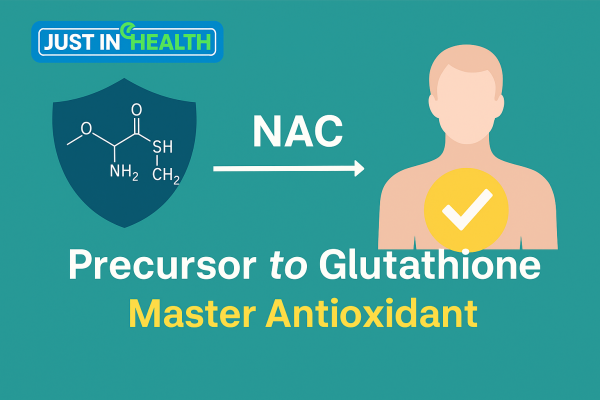
One of NAC’s most well-known benefits is its antioxidant power. By boosting glutathione levels, NAC helps neutralize harmful free radicals that can damage DNA, proteins, and cell membranes. This oxidative stress contributes to chronic diseases, including cancer, neurodegenerative conditions, and cardiovascular disease.
Studies show that NAC also supports the production of additional antioxidant enzymes like superoxide dismutase and catalase, which help break down oxidative compounds like hydrogen peroxide.
As an antioxidant booster, NAC has been shown to reduce systemic inflammation, improve cellular resilience, and slow aging at the cellular level.
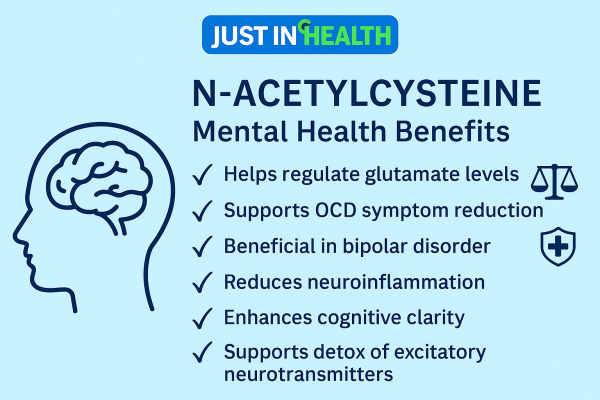
NAC profoundly affects brain health, primarily due to its role in regulating glutamate, the primary excitatory neurotransmitter in the brain. When glutamate levels are too high, it leads to excitotoxicity — a phenomenon linked to conditions like OCD, bipolar disorder, schizophrenia, and even Alzheimer’s disease.
By promoting healthy glutamate balance, NAC helps reduce symptoms of compulsive behaviors, depression, anxiety, and brain fog. It also supports mitochondrial function in neurons and reduces neuroinflammation by calming activated microglia, the brain's immune cells.
NAC’s mental health benefits are auspicious in adjunctive treatment for psychiatric disorders, making it a low-risk, affordable complement to traditional therapies.
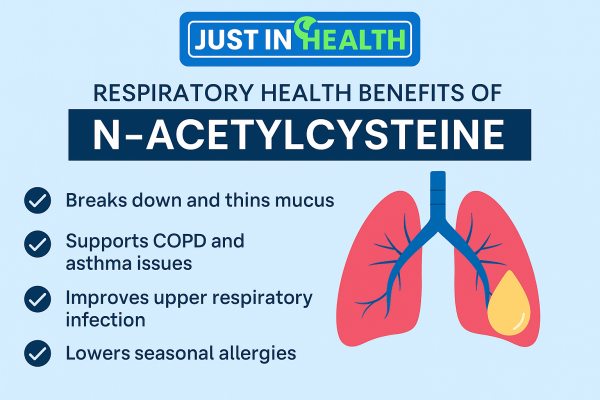
NAC acts as a powerful mucolytic, breaking down and loosening mucus in the airways. This is especially beneficial for people suffering from respiratory conditions such as:
In hospitals, NAC is often administered via inhalation to patients with thick mucus or congestion. It helps reduce lung inflammation, promote oxygen exchange, and improve overall pulmonary function. By enhancing glutathione levels in lung tissue, NAC also defends against environmental pollutants and oxidative stress from smoking and air pollution.
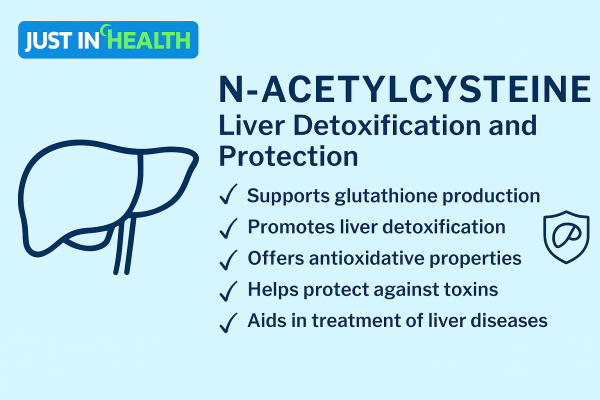
NAC is the gold-standard treatment for acetaminophen (Tylenol) overdose and is routinely used in emergency rooms to prevent liver failure. Its effectiveness lies in rapidly replenishing glutathione, which detoxifies NAPQI — the toxic byproduct of acetaminophen metabolism.
Beyond emergency use, NAC supports liver health in people with:
Its anti-inflammatory and antioxidant effects help the liver process toxins, reduce fibrosis, and improve cellular repair.
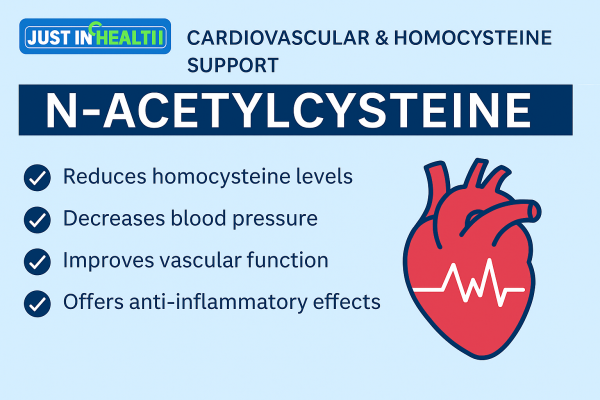
When elevated, Homocysteine is a sulfur-containing amino acid linked to inflammation and arterial damage. NAC can reduce homocysteine levels, thereby lowering the risk of atherosclerosis, stroke, and heart attack. It acts as a sulfur donor, promoting the methylation process that safely converts homocysteine into beneficial compounds.
Additionally, NAC improves endothelial function — the health of the inner lining of blood vessels — which is critical for regulating blood pressure and maintaining cardiovascular integrity.
Combined with B vitamins (B6, B12, folate), NAC is a potent cardiovascular support supplement.
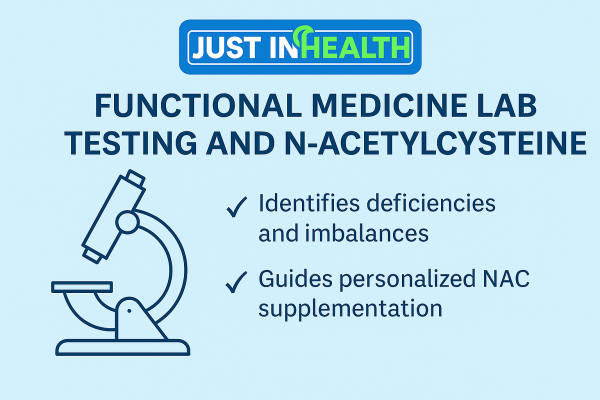
In functional medicine, NAC isn't prescribed blindly. It's tailored to your body based on detailed lab results. Dr. Justin Marchegiani uses a series of personalized labs to identify where NAC support is most needed.
These insights allow Dr. J to craft a protocol that includes NAC, alongside dietary and lifestyle interventions, to resolve the root causes of illness.
NAC is typically dosed between 600 and 2000 mg/day for general antioxidant and detox support, and it is taken in divided doses. Clinical studies support:
It pairs well with glycine (via collagen peptides) to complete the glutathione triad. Taking NAC with meals can minimize gastrointestinal upset.
Always consult your practitioner to personalize dosage, especially if you have pre-existing conditions or are taking medications.
NAC is FDA-approved as a treatment for acetaminophen toxicity. It’s also used clinically for:
Its safety and efficacy track record makes it a valuable tool for integrative and conventional practitioners.
Want expert guidance on how NAC can benefit your body based on your labs and symptoms?
Take the next step toward better health today!
References
====================
Recommended Products
====================
IN CASE YOU MISSED IT:
Understanding the Link Between High Insulin Levels and Acne: A Functional Medicine Approach